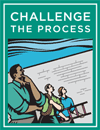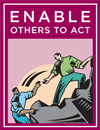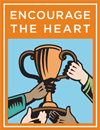My Knowledge
I am fortunate to have been afforded many unique opportunities throughout my life. I believe that these experienced have shaped who I am as a person and fostered my development as a professional. With a strong involvement in working with youth in many diverse domains, I feel particularly knowledgeable with respect to the realms of pedagogy and leadership.
I have always had a passion for mathematics and have had many great teachers that have imparted their wisdom on me. As such, I am very excited to share my love of the subject area with my future students. In particular, I feel as though I bring an enthusiasm with respect to the subject content. I feel as though the best way to teach math (a subject that has a stereotypical label of being dry) is through experiential learning. On this page, I have offered some evidence of how I can incorporate this experiential approach in my classroom.
In general, this page illustrates knowledge and abilities I have gained through my formal education and involvement in extra-curricular activities.
Mathematics Courses
CSC 106 - The Practice of Computer Science
CSC 110 - Fundamentals of Programming I
Math 100 - Calculus I
Math 101 - Calculus II
Math 122 - Logic and Foundations
Math 211 - Matrix Algebra
Math 212 - Introduction to Algebra
Math 362 - Elementary Number Theory
Math 366 - Euclidean Geometry
Stats 255 - Statistics for Life Sciences I
Stats 256 - Statistics for Life Sciences II
Physical Education Courses
EPHE 105 - Swimming
EPHE 106 - Track and Field
EPHE 107 - Gymnastics
EPHE 109 - Recreational Dance
EPHE 116 - Badminton
EPHE 117 - Tennis
EPHE 120 - Basketball
EPHE 121 - Soccer
EPHE 122 - Volleyball
EPHE 124 - Field Hockey
EPHE 134 - Yoga
EPHE 135 - Martial Arts
EPHE 141 - Human Anatomy
EPHE 143 - Multidisciplinary Foundations of Physical Activity
EPHE 201 - Qualitative Analysis of Human Movement
EPHE 245 - Motor Learning
EPHE 246 - Active Health
EPHE 341 - Biomechanics
EPHE 344 - Care and Prevention of Athletic Injuries
EPHE 346 - Motor Development and Physical Maturation
EPHE 352 - Instructional Techniques in Individual Activities
EPHE 360 - Exercise Prescription
EPHE 361 - Coaching Studies
EPHE 443 - Organization and Administration of PE
EPHE 452 - Teaching Strategies for Games
Education Courses
The Five Practices of Exemplary Leadership
Model the Way
 |
Leaders establish principles concerning the way people should be treated and the way goals should be pursued. I create standards of excellence and then set an example for others to follow. Because the prospect of complex change can overwhelm people and stifle action, I set interim goals so that people can achieve small wins as they work toward larger objectives. I unravel bureaucracy when it impedes action; I put up signposts when people are unsure of where to go or how to get there; and I create opportunities for victory. |
Inspire a Shared Vision
|
|
Leaders passionately believe that they can make a difference. I envision the future, creating an ideal and unique image of what the organization can become. Through magnetism and quiet persuasion, I work hard to enlist others in their dreams. I try to breathe life into other people's visions and get people to see exciting possibilities for the future. |
Challenge the Process
|
|
Leaders search for opportunities to change the status quo. I am constantly looking for innovative ways to improve the organization. In doing so, I experiment and take risks. And because I know that risk taking involves mistakes and failures, I accept the inevitable disappointments as learning opportunities. |
Enable Others to Act
|
|
Leaders foster collaboration and build spirited teams. I actively involve others and understand that mutual respect is what sustains extraordinary efforts; I strive to create an atmosphere of trust and human dignity. I work hard to strengthen others, making each person feel capable and powerful. |
Encourage the Heart
|
|
Accomplishing extraordinary things in organizations is hard work. To keep hope and determination alive, I recognize contributions that individuals make. In every winning team, the members need to share in the rewards of their efforts, so leaders celebrate accomplishments. |
For more information about Kouzes and Posner's Model above, I encourage you to explore their Leadership Challenge website.



